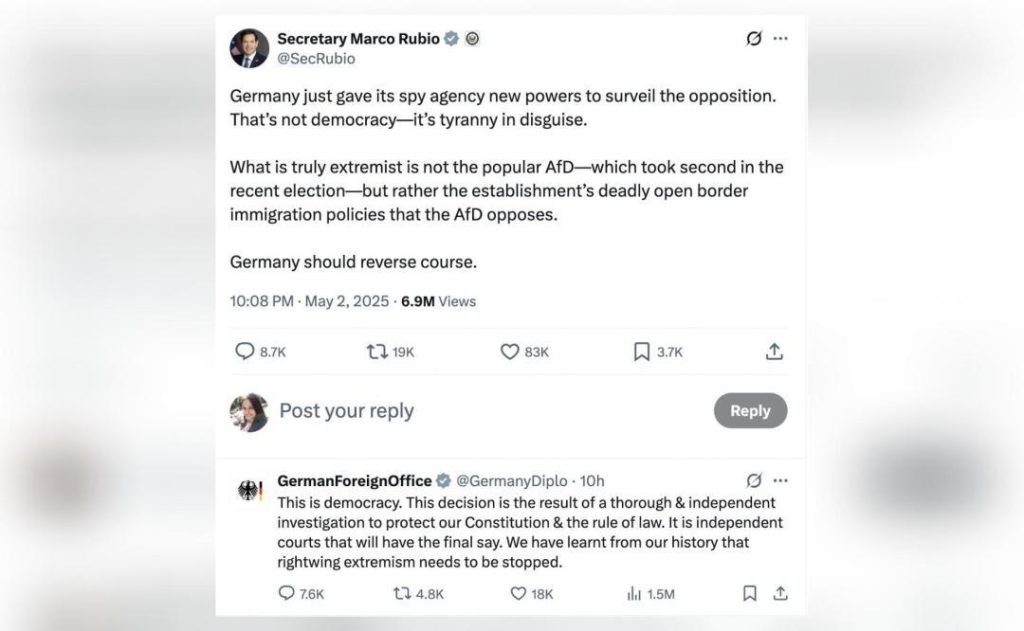
US Secretary of State Marco Rubio & German Govt Clash Over AfD Party’s ‘Extremist’ Tag
In a recent development that has sent shockwaves across the political landscape, US Secretary of State Marco Rubio has clashed with Germany’s Foreign Ministry over the latter’s decision to term the far-right Alternative for Germany (AfD) party as “extremist”. The disagreement has sparked a heated debate, with Rubio accusing Germany of enabling “tyranny in disguise” and the German government defending its decision as a necessary step to protect its Constitution.
The controversy began when Germany’s domestic intelligence agency, the Federal Office for the Protection of the Constitution (BfV), classified the AfD party as “extremist” due to its alleged anti-constitutional activities. The decision was made after a thorough investigation, which revealed that the party’s rhetoric and actions were aimed at undermining Germany’s democratic system.
However, US Secretary of State Marco Rubio took umbrage with the decision, accusing the German government of overstepping its bounds and infringing upon the AfD party’s freedom of speech. In a statement, Rubio said, “I am deeply troubled by Germany’s decision to label the AfD party as ‘extremist’. This is a clear attempt to silence political dissent and undermine democracy.”
Rubio’s remarks were met with swift rebuke from the German government, which defended its decision as necessary to protect its Constitution. In a statement, the German Foreign Ministry said, “The decision regarding AfD is a result of thorough investigation to protect our Constitution. We will not shy away from taking measures to ensure the security and stability of our democracy.”
The debate has sparked a wider discussion about the role of political parties in democratic societies and the importance of protecting free speech. While some have argued that the AfD party’s rhetoric and actions are indeed extremist and pose a threat to Germany’s democracy, others have criticized the German government’s decision as an overreach and a violation of the party’s constitutional rights.
The controversy has also raised questions about the role of intelligence agencies in democratic societies. The BfV’s decision to classify the AfD party as “extremist” has been hailed by some as a necessary step to protect Germany’s democracy, while others have criticized the agency’s methods and motives.
In conclusion, the clash between US Secretary of State Marco Rubio and the German government over the AfD party’s “extremist” designation has highlighted the complex and contentious issues surrounding political parties in democratic societies. While the debate is unlikely to be resolved anytime soon, it is clear that the stakes are high and the consequences of getting it wrong could be severe.



